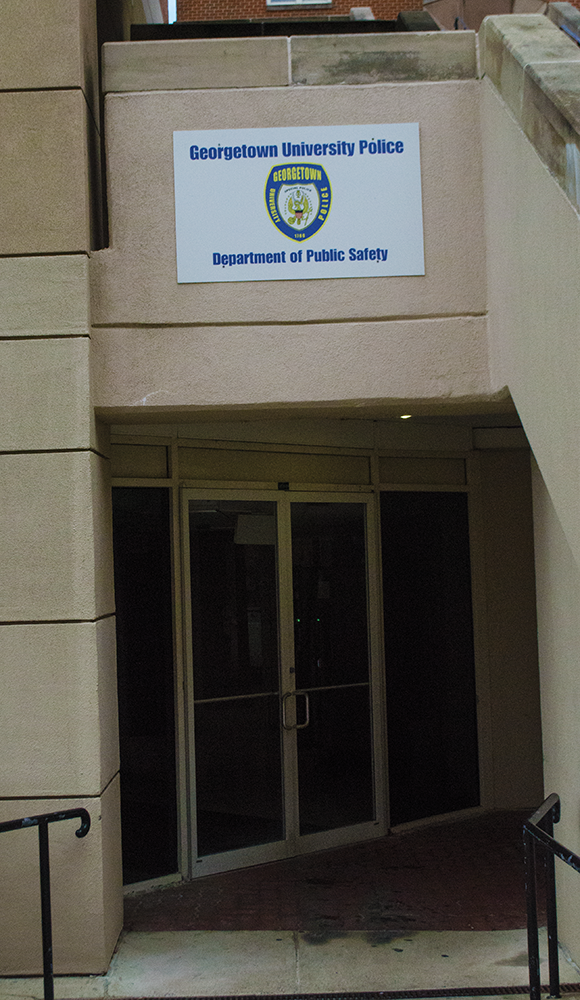
Mayor Muriel Bowser proposes to expand resources available for survivors of sexual assault in Washington, D.C.
Washington, D.C. Mayor Muriel Bowser (D) plans to expand the pool of confidential advocates for survivors of sexual assault, codify the duties of the District’s Sexual Assault Response Team and clarify the rights of survivors when they access emergency care in legislation proposed April 3.
Announced April 13, the legislation also requires prosecutors to explain their decisions to survivors if they choose not to prosecute an accused perpetrator, prohibits the removal of a person’s clothes without consent and clarifies the right of a survivor to compensation under individual insurance policies.
Interim Metropolitan Police Department Chief Peter Newsham, who served on the Sexual Assault Victims Rights Task Force, a group of representatives from local law enforcement, sexual assault victim advocates, treatment providers and legal experts convened in October 2014, said the legislation focuses on better serving survivors of sexual assault and addressing their needs in a comprehensive way.
“We talked about our experience with survivors, how we feel we could — in a way — we could successfully navigate cases through the criminal justice system, which is not always the easy thing,” Newsham said in an interview with The Hoya. “But when you’re talking about sexual assault, whenever you’re dealing with a sexual assault survivor, the focus has to be on the survivor and making sure that they control the process.”
Resources would be available to any sexual assault survivor who is at least 12 years old, ensuring that all minors receive the same resources as those who are adults, under the legislation proposed to D.C. Council Chairman Phil Mendelson (D).
Bowser and the D.C. Sexual Assault Victims Rights Task Force drafted the legislation to amend the Sexual Assault Victims’ Rights Act of 2014 and better study incidents of sexual assault in D.C.
In a January 2016 report, the task force concluded the District should expand resources available for survivors after a 2013 Human Rights Watch report criticized MPD for mishandling sexual assault cases.
The HRW report noted that cases were frequently not properly investigated and that victims often faced cold and inconsiderate treatment, discouraging victims from reporting assaults.
Bowser said the Sexual Assault Victims’ Rights Amendment Act of 2017 provides support and help to sexual assault survivors.
“Ensuring the safety of every Washingtonian has been my administration’s top priority since day one, and this legislation will help us do more to provide critical support for the victims of sexual assault,” Bowser said in an April 13 press conference. “Through this legislation, we can ensure that every victim of sexual assault — no matter their background — is treated with fairness and dignity.”
Newsham said the new act will work to improve current police and District government officials’ practices.
“In policing, we have evolved quite a bit in how we approach sexual assault investigations. This is an evolution. I don’t think we’re done. I think there will be also additional legislation in the future that will help us provide better service to the victims. I would call this one step forward in the right direction,” Newsham said.
Taskforce member Michelle Garcia, the director of the D.C. Office of Victim Services and Justice Grants, said the legislation’s strength lies in its specific programs dedicated to survivors of sexual assault, such as expanding the number of sexual assault advocates across the District.
“Right now, sexual assault victims have a right to a confidential advocate in very narrow circumstances,” Garcia said. “They can also provide information about what their options are and assist victims in making informed decisions about what choices they want to make [and] how they want to move forward, whether that’s through the criminal or civil justice systems or other directions.”
The task force worked for over a year and a half to examine the systems that were already in place in the District to look at best practices and develop recommendations, according to Garcia.
“This package of the legislation reflects that very thoughtful and deliberate process, and we absolutely believe that this package will contribute to a better response for victims and survivors, more accountability for offenders and an overall safer and stronger District of Columbia,” Garcia said.
Laura Kovach, the director of the Georgetown University Women’s Center, said the additional support for advocates is key in encouraging survivors to report instances of sexual assault.
“A sexual assault advocate can help survivors navigate processes, advocate on their behalf with healthcare and law enforcement and be a supportive presence for them from start to finish,” Kovach wrote in an email to The Hoya. “If our community resources are strong and survivors have access to advocates they are more likely to get the care they need and possibly pursue the criminal justice system.”




















